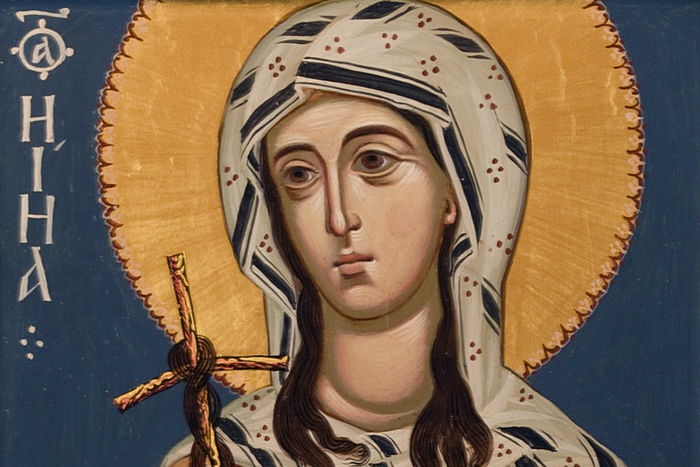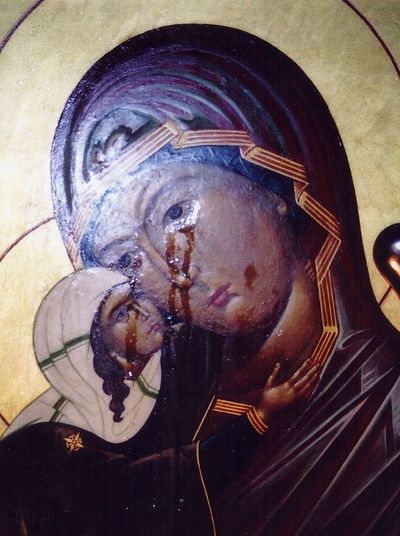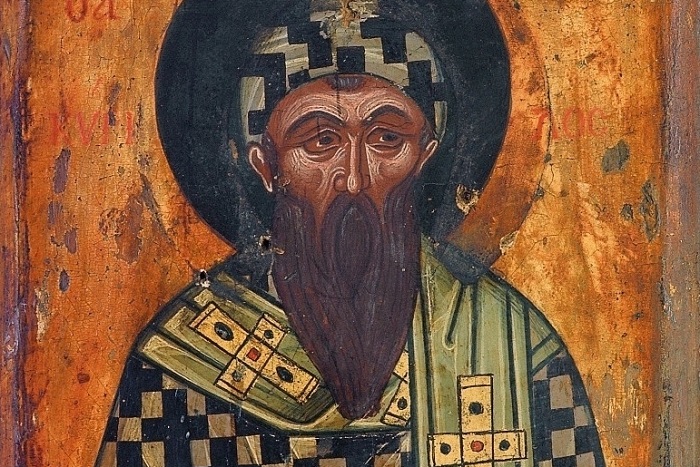
Saint Cyril of Alexandria, who was a great champion of the Orthodox faith, a prominent theologian and a bishop, is commemorated on June 9. It is hard to overestimate his role in establishing Orthodoxy and fighting Nestorian heresy. He is regarded as one of the pillars of Orthodox dogmatics and a remarkable commentator who wrote quite a few copious works. Here are the key points of the bishop of Alexandria’s teaching about Christ and the mystery of our salvation.
I. Word Became Flesh. The personhood of Jesus Christ was the central issue of disagreement for St. Cyril’s times. Who was Jesus Christ? Nestorius and Theodore of Mopsuestia saw Christ merely as a man, Virgin Mary’s son, who was adopted by the Logos at birth, while St. Cyril had the following words from the Gospel according to John, The Word was made flesh (John 1:14), as his motto. God became human, which He had never done before, St. Cyril insisted. Jesus is the God-man.
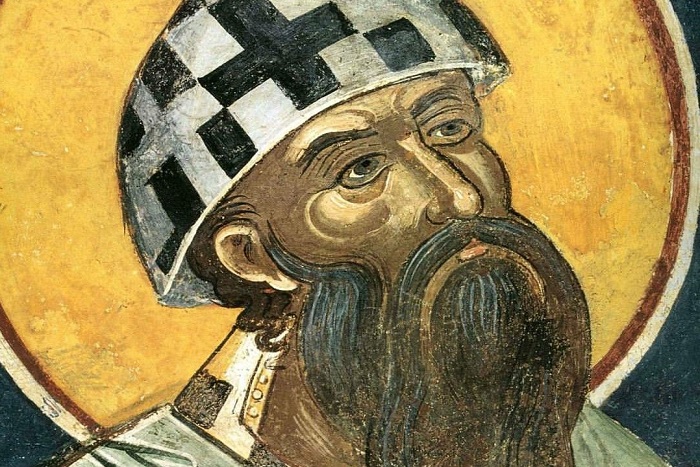
II. Forever Human. St. Cyril introduced the concept of hypostatic unity of the two natures in Christ. He opposed synathia (‘joining’ or ‘touching’), an Antiochian term that could lead to potential loss of unity between the natures of Christ, i.e., separation of his divine nature and his human nature, which would in turn make all results of his Incarnation moot and annul God’s efforts. The Logos forever became human. He made human nature and human body his own. It is precisely why we can say that God was born, grew up, was hungry and thirsty, suffered and died. According to Cyril, Jesus’s body is the body of God, Jesus’s arm is God’s arm, etc. So we can openly say that Virgin Mary, who gave birth to Jesus, is the real Mother of God, Theotokos.
III. Salvation Is Possible Only Thanks to Incarnation. St. Cyril was resolute in the way he expressed his teaching and his famous 12 anathemas, whereby he professed his belief in the Incarnation of the Logos, because he, like his predecessor St. Athanasius the Great, considered the Incarnation to be the cornerstone of our salvation. To save the entire world, God had to be incarnated, to become human for real, and not just to take up human form, as it had often been described in ancient myths. Salvation is possible only if human nature is taken by God and becomes his own. It can’t be regarded as genuine Incarnation if God merely dwelt inside the man named Jesus.
IV. Weaknesses of the School of Alexandria. While Alexandrian theologians focused on the Savior’s divine dignity and cleverly emphasized his divine nature, they weren’t as outspoken when dealing with purely human aspects of Jesus Christ, in particular, his psychology, that is, the issues that contemporary Protestant theology is so interested in. St. Cyril stayed within the boundaries of Orthodoxy but he made several involuntary mistakes, one of which was due to his arbitrary use of the theological terminology he inherited from the great Cappadocians. In particular, Cyril used terms ‘nature’ and ‘hypostasis’ interchangeably, although the Cappadocians used them to mean essence and personality respectively. The imbalanced Christology of Cyril and his excessive emphasis on the divine nature of the Savior was corrected by the Council of Chalcedon (451), which pacified the representatives of the School of Antioch by confirming full humanity of Christ. Jesus is the true God and the true human: the Word made flesh.
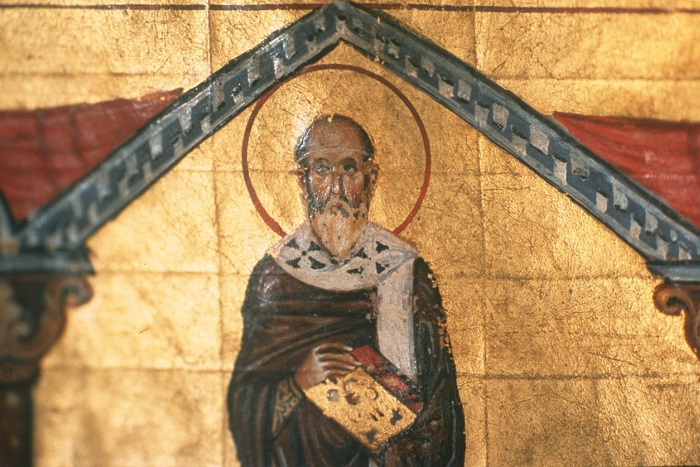
V. The Eucharist Is The Key to Our Salvation. God became man. Jesus’s body is divine and transformed. There is neither death nor corruption but life, and a more abundant life (John 10:10). How can a 21st-century person join this immortal life, this victory over sin and death? The answer lies in the Sacrament of the Eucharist, St. Cyril believes. It is living in the Church and participation in the Eucharist that saves you, makes you part of the Body of Christ and allows you to partake of the life of the Most Holy Trinity as much as you can. The Sacrament of the Eucharist was one of the arguments, which St. Cyril used against Nestorius. Cyril claimed that if God hadn’t become man, the new Adam, but merely purified the person called Jesus by his presence, then the Eucharist wouldn’t be possible and would even be nonsensical.
St. Cyril’s theology, especially his Christology, is important even nowadays. People have said so many words about Jesus’s humanhood and his life and actions as a carpenter from Galilee. Of course, we have to bear that in mind. Nevertheless, the world yearns for God, even if it doesn’t realize that. A world without God is a fallen world, a godless world stripped bare of the biblical aim of its existence and continually chasing illusory goals. That is why the Orthodox teaching of St. Cyril on the Incarnation of God, the healing and divinification of human nature, and on the Fountain of Immortality that each person can access through participation in the Divine Liturgy, is what this world, and the modern human who has lost the meaning of her existence, really needs.

